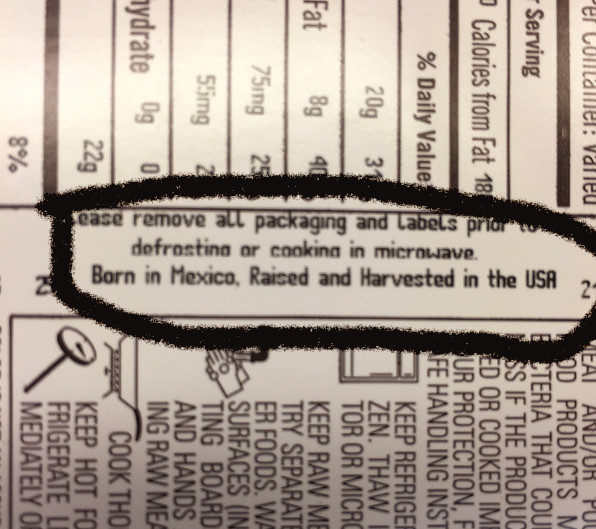
Agricultural News
Study Claims No Harm to Canadian or Mexican Cattle Industry by US COOL
Fri, 23 Jan 2015 04:40:45 CST
 The National Farmers Union has helped fund a study that their President, Roger Johnson, contends shows Country of Origin labeling in the United States has not harmed Canadian or Mexican cattle producers since it was implemented by rule making that came out of the 2008 Farm Law. Contrary to arguments made by America's trade competitors to the World Trade Organization (WTO), this Auburn University study asserts that an economic downturn that sapped consumer demand - not Country-of-Origin Labeling (COOL) - caused decreased demand for cattle imports into to the U.S.
The National Farmers Union has helped fund a study that their President, Roger Johnson, contends shows Country of Origin labeling in the United States has not harmed Canadian or Mexican cattle producers since it was implemented by rule making that came out of the 2008 Farm Law. Contrary to arguments made by America's trade competitors to the World Trade Organization (WTO), this Auburn University study asserts that an economic downturn that sapped consumer demand - not Country-of-Origin Labeling (COOL) - caused decreased demand for cattle imports into to the U.S.
"COOL did not cause the declines in livestock exports to the United States, which largely coincided with a substantial global economic downturn that sapped demand for more expensive meat products," notes the study, authored by C. Robert Taylor, Ph.D., an Auburn University Alfa Eminent Scholar and Professor.
Canada and Mexico challenged COOL provisions related to muscle cuts ofbeef at the WTO in 2008, alleging the widely popular labeling law was a trade barrier that compromised their export opportunities and market access to the United States for live cattle and hogs. The cost of implementing COOL, they argued, discouraged U.S. meatpacking and processing companies from purchasing livestock of non-U.S. origin and, as a result, reduced the prices of these livestock exports.
But after close examination of more robust data sources to assess the impact of COOL on market access, the study found:
COOL has not had a significant negative effect on the price paid for imported slaughter cattle relative to comparable domestic cattle. In fact, the fed cattle price basis declined after the law went into effect. "The price basis is lower in the six years since implementation of COOL than it was the preceding four years," the study notes;
COOL did not negatively impact imports of slaughter cattle. "Qualitative and econometric analysis of Mandatory Price Reporting (MPR) and monthly trade and price data cast considerable doubt on assertions that COOL negatively affected imports of slaughter cattle," says the study. Failure to recognize the effects of imported and domestic captive supplies of slaughter cattle and beef demand uncertainty, along with other factors, played a larger role in reduced import demand than acknowledged in previous studies.
COOL did not significantly affect imports of feeder cattle. "USDA monthly data on imports of 400-700 lb. cattle did not show COOL having a significant negative effect of imports of feeder cattle from either Canada or Mexico relative to placements in U.S. feedlots," the study points out.
Dr. Taylor joined National Farmers Union President Roger Johnson on a news teleconference on Thursday afternoon- and his description of his research can be heard by clicking on the LISTEN BAR below. You can review the highlights of the report by clicking here for a powerpoint summary.
Johnson told reporters that he believes the current rule crafted by the USDA two years ago is trade compliant- and that the information from this study may never have to be used. However, if the WTO rules again against the United States that this rule that is based on the language found in the 2008 Farm Law- this study conducted by Dr. Taylor becomes relevant as it shows that there is no harm to the Canadian or Mexican cattle industry and that they are not entitled to any compensation under the WTO action.
Despite studies that show most consumers are not aware of the COOL labels on packages of meat , Johnson also told reporters that "COOL is popular with consumers because they want to know where their food comes from, and it's popular with farmers and ranchers because they're proud to put the American label on their products. Congress needs to stay the course on COOL."
WebReadyTM Powered by WireReady® NSI
Top Agricultural News
More Headlines...




















